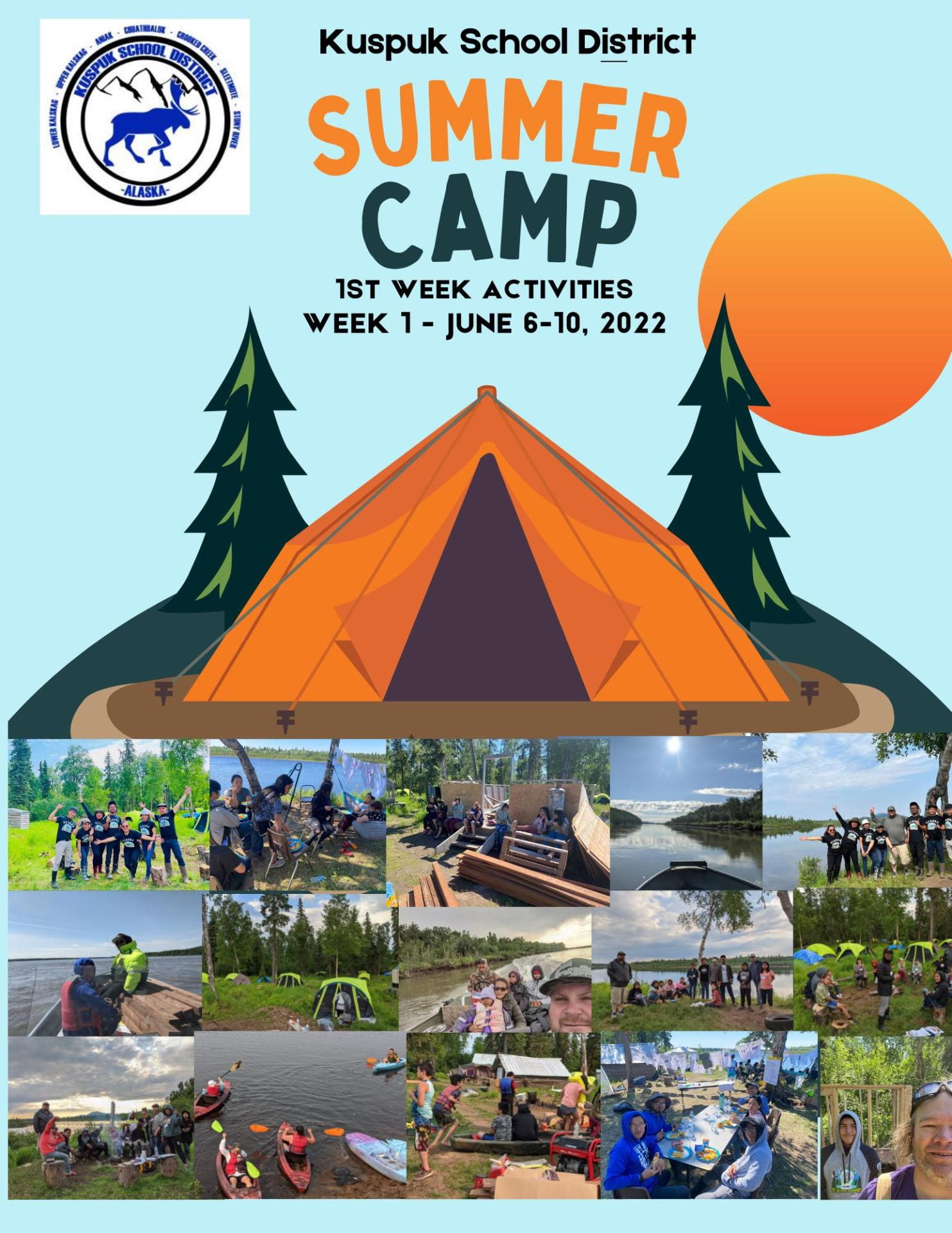Blending cultural studies, education curriculum, and summer camp may seem difficult. However, the team at Kuspuk School District has found a way to do all three and continue to grow their Remote Culture Camp which began in 2021.

In the spring of 2021, the school district began discussing ways to use their COVID relief funds and grants to expand their summer school offerings. Dr. Madeline Aguillard, Superintendent of Kuspuk School District, and Severin Gardner, Principal of Kalskag Schools, came up with the idea of blending a summer school program with a camp experience.
When planning the curriculum for the camp, Dr. Aguillard said, “Severin and I wanted to tie in culturally relevant life skills because it would be something unique to our district.” The team felt this idea would encourage more students to attend summer school when other options such as fish camps were offered. The school district didn’t want to compete with subsistence activities but incorporate them into the summer school activities.
The summer school curriculum focused on math, science, and reading. The students were able to learn robotics and use drones for the science portion and used I-Ready curriculum for math and reading.
The school district offered three one-week camps this year, and 120 students participated, 40 more students than the first year the camp was offered. “Many of those who attended the previous year returned and brought their friends with them,” Dr. Aguillard said.
During the camp, the students had the opportunity to fish and learn traditional ways to prepare fish from community members. The students then gave back to the community by smoking fish to give to elders in the community. Other activities include kayaking and canoeing, hiking, leadership, and team-building. Dr. Aguillard shared that this year the students were divided into a “house system,” where they worked together through different leadership activities.
Teachers from across the United States traveled to Kalskag to help teach at this year’s camp and helped create the camp’s activity curriculum. Teachers made their way to the camp from North Carolina, Florida, Arizona, and Wyoming to experience the Alaska wilderness. Dr. Aguillard said, “The students in some aspects were teachers too because they were able to teach and guide people who were not from the area about their culture.”
Dr. Aguillard said the Remote Learning Camp wouldn’t be possible without community support helping transport the students to and from the camp. The district looks forward to continuing to offer the camp to students in the future.